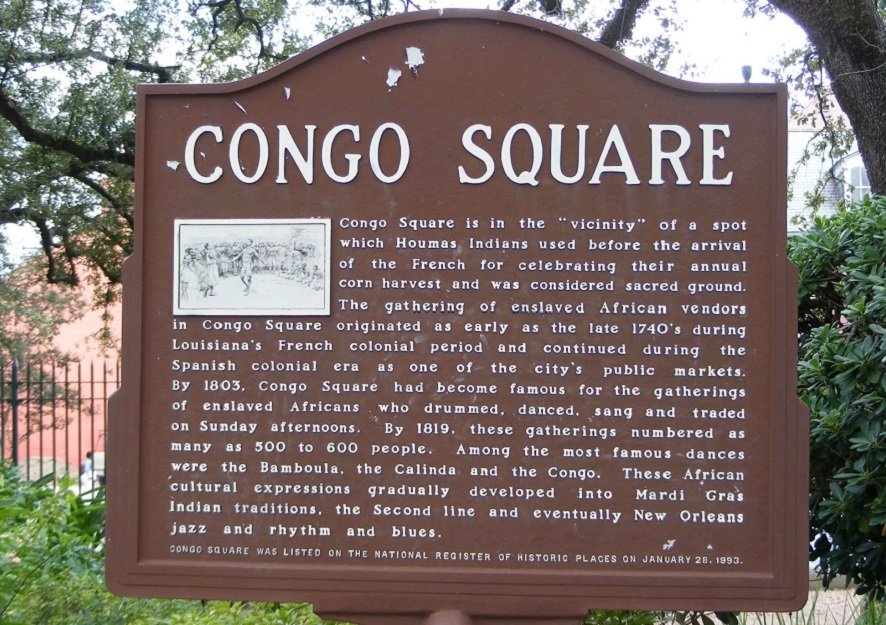New Orleans, Louisiana, has carved its name in history as the home and birthplace of jazz music, one of the biggest music genres in America and the world to date. Congo Square, the spot in New Orleans where enslaved Africans created jazz music.
Jazz music developed out of original African music played and performed by Creole plantation workers in New Orleans whose music and lifestyle was slowly influenced by their white masters, people from the West Indies, Cuba and France.
New Orleans was established by the French Colony in 1718 and stayed under the French flag until it became part of the USA in 1803 after the Spanish took over from the French.
Before ragtime, blues and jazz were played on the streets and in every corner of New Orleans, enslaved Africans – called Creoles at the time – only met at a place called Congo Square to sing and perform their African music.
Unlike the territories under the USA, C
In 1724, the French implemented the 1685 Code Noir in New Orleans which restricted the activities of the Creoles and gave them only Sundays as their rest day. The Creoles used the day to gather and socialize, have religious services, trade and most importantly, gather to sing and dance in a true African style.

Code Noir was relaxed between 1736 and 1760s and African music and culture thrived in New Orleans with several Creoles setting up small businesses to support themselves and eventually raise enough money to purchase their freedom.
How was Congo Square born?
In 1817, the then Mayor of the city, Augustin de Macarty, restricted the black community, both enslaved and freed and issued an ordinance that they should have their activities at the outskirts of town. The black community found an open space around Rampart Street close to the Morand plantation which they named Congo Square.

The open space was popularly called Congo Square due to the fact that many of the enslaved Africans were from the Congo and their culture dominated the area, developing the blues, swing time and ultimately jazz music.
At every opportunity they had, both enslaved and freed Africans in the now cosmopolitan area met in Congo Square to make merry and perform their African music and dance. The gatherings attracted over 600 people from the black community at the time and also attracted other races to witness and enjoy the rather different and intriguing music that was developing in this area.

Congo Square soon attracted visitors from all over the USA including freed African Americans who had the chance to make the trips to reconnect with their history and develop culture. With time, Congo Square became the centre of town as the area started to develop into a settlement which became known as Treme.

The blues, swing time and jazz were born from Congo Square with influence from the blacks who came from the South with work and spiritual songs, the Caribbean with West African rhythms and the French and Spanish influences as well. With time, the pure black music born in New Orleans travelled throughout the USA becoming a music genre to reckon with by late 1830s.

The Congo Square not only gave birth to a music genre that will have an impact on music all over the world, but it also birthed a generation of entertainers such as Louis Armstrong, Manela Hewitt, Edmund Dede,
Emma Barrett and Jimmy Durante to name a few. It also developed African traditional religious practises such as Voodoo which heavily depended on music. The Congo Square also helped spark entrepreneurial skills in the black community and businesses such as bars, theatres, clubs, tailoring shops, shoe shops and several others.

By the start of the 1840s, the patronage and usage of the Congo Square began to decline due to the legislative restriction of blacks meeting at a common ground for any reason. By the start of the Civil War, the Sunday meetings had long died and Congo Square was now an emotional memory for many but the music had established itself in America and could not be stopped as several African-American musicians were playing in all the nightclubs, pubs, parties, theaters and even churches especially in New Orleans.
Today, Congo Square is inside the Louis Armstrong Park in New Orleans which pays tribute to the greatest and most influential jazz singer and composer of all time.










